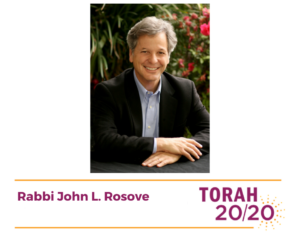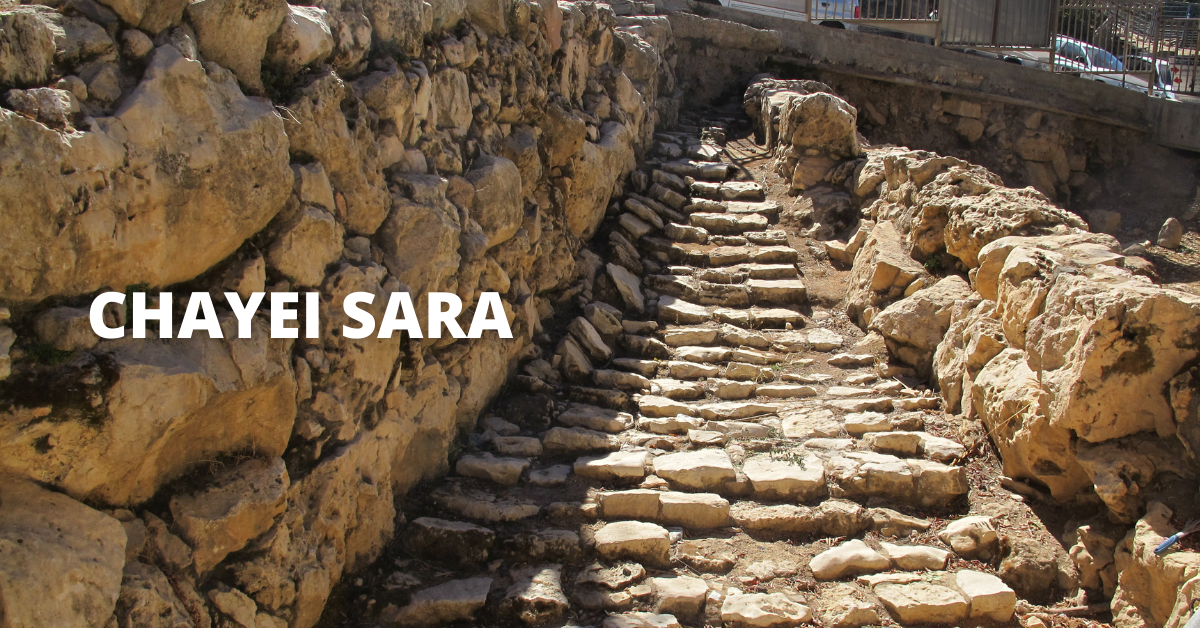A D’var Torah for Parshat Chayei Sara by Rabbi John L. Rosove
Several years back, I visited an ancient stone staircase in Hebron, lifted a small rock, held it in my hand, and thought that it might have been witness to the presence of our patriarch Abraham 3,600 years ago. I don’t believe that I’ve ever touched anything as old and potentially significant as that piece of earth.
Standing on that biblically historic place, I felt a thrill, but also deep worry about the political divide in Hebron that threatens to tear our people apart and that sets Israel and the Jewish people against the Palestinians. Relative to those challenges and in our own American polarized nation, it’s worthwhile to ask what deeper truth the ancient world generally, and this Torah portion in particular, might teach us.
Anthropologists believe that the brain size of “early Homo sapiens already fell within the range of present-day humans… between 100,000 and 35,000 years ago.” If this is true, we can surmise that we aren’t all that different from Abraham in the ways that he thought, felt, and reacted, and what he likely cared about and valued. By paying attention to the human experiences and wisdom of the distant past, we ought to be able better to understand who we are in the greater context of human history.
The stories that fill Genesis are about tribal beginnings and family relationships. Though many of these stories shine a light on the varieties of dysfunctional relationships between parents and children, spouses and siblings, women and men, our classic texts affirm that life isn’t about things. Rather, it’s about family and relationships. Family relationships have been innate to what it means to be human for tens of thousands of years. Living in our complex, technological, and polarized world, to be reminded that family is central to the human condition can help assure us a measure of sanity.
Two family stories are told in Parshat Chayei Sara – Abraham’s purchase of a burial site for Sarah in Hebron and his arrangement of Isaac’s marriage to Rebecca. Together, they embrace the past, present, and future of the patriarch’s familial line. Despite the death of his wife, Abraham didn’t succumb to despair or withdraw from life. Rather, he took care of the short-term business of burial and planned for the long-term survival of his tribe.
In a recent walk in my neighborhood with one of my grown sons, we reflected upon the stresses and anxieties that Americans and Jews feel during this pandemic: massive human suffering, economic collapse, unemployment, racial turmoil, and social and political polarization. We discussed the existential assaults upon American democratic institutions and norms and against liberal American values that we’ve witnessed in recent years.
We agreed that it’s necessary to maintain perspective to allay anxiety as we confront these multiple challenges. One way to do so is to consider our lives relative to the ups and downs of our nation’s history and the highs and lows of centuries of Jewish experience. Another way is to affirm the importance of family and close relationships as primary sources of strength, comfort, balance, stability, purpose, responsibility, meaning, and optimism.
As I recall standing upon those millennia-old steps holding that aged stone in my hand, I take heart in the ancient truth that functional families, close friendships, and coalitions of decency with other religions and peoples have the capacity to sustain us, that historical perspective is a balm to mind, heart, and soul, and that pragmatic, sure, and visionary leadership is a hedge against societal chaos and an opportunity to seek the fulfillment of our people’s  and nation’s highest aspirations.
and nation’s highest aspirations.
John L. Rosove is Senior Rabbi Emeritus of Temple Israel of Hollywood in Los Angeles, a national co-chair of the Rabbinic and Cantorial Cabinet of J Street, and the immediate past national chair of the Association of Reform Zionists of America (ARZA). He is the author of Why Judaism Matters – Letters of a Liberal Rabbi to his Children and the Millennial Generation (Nashville: Jewish Lights, 2017) and Why Israel (and its Future) Matters – Letters of a Liberal Rabbi to his Children and the Millennial Generation (New Jersey: Ben Yehuda Press, 2019).

